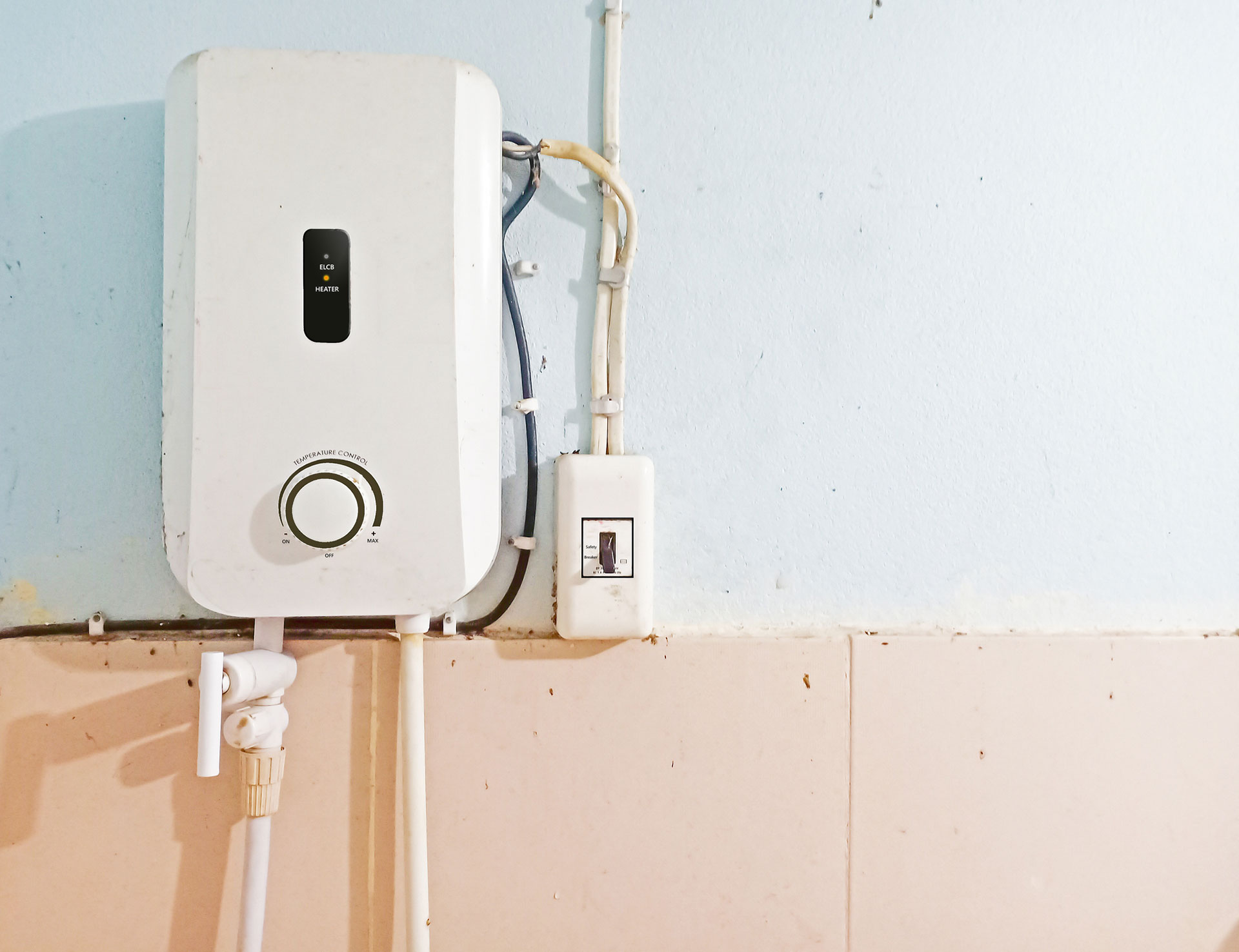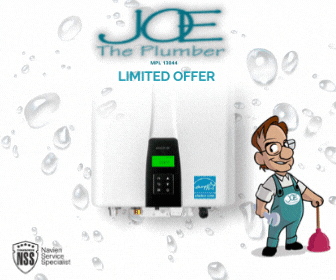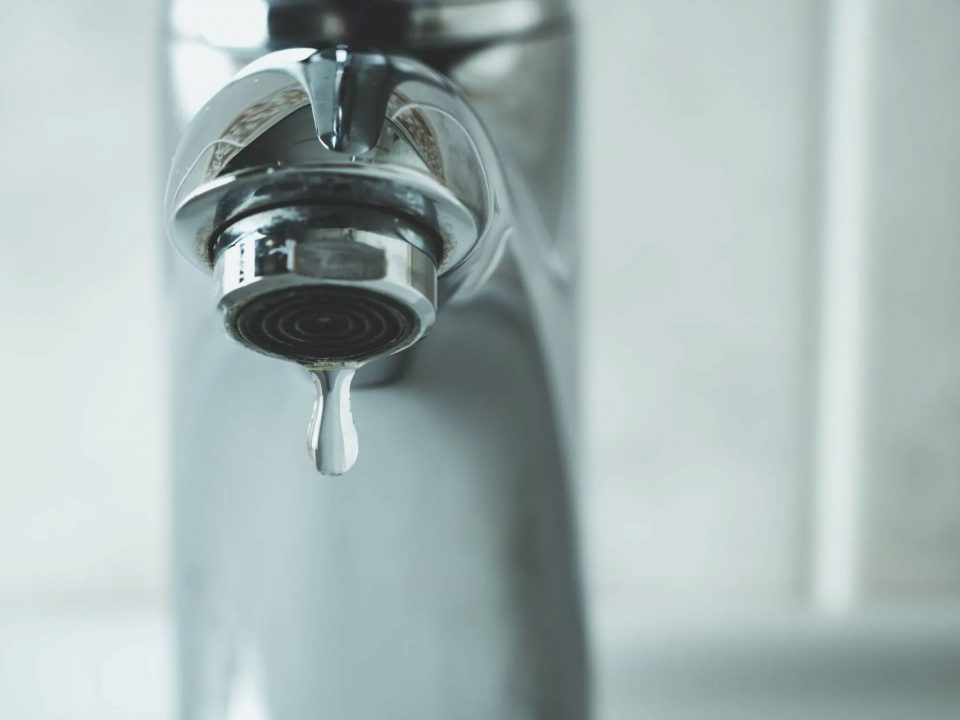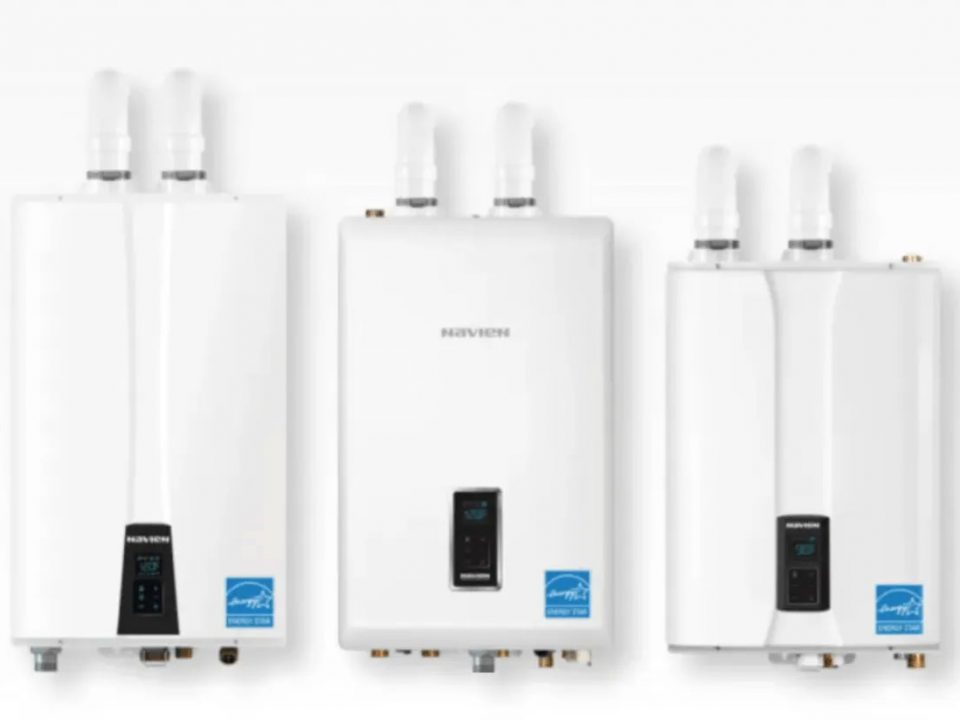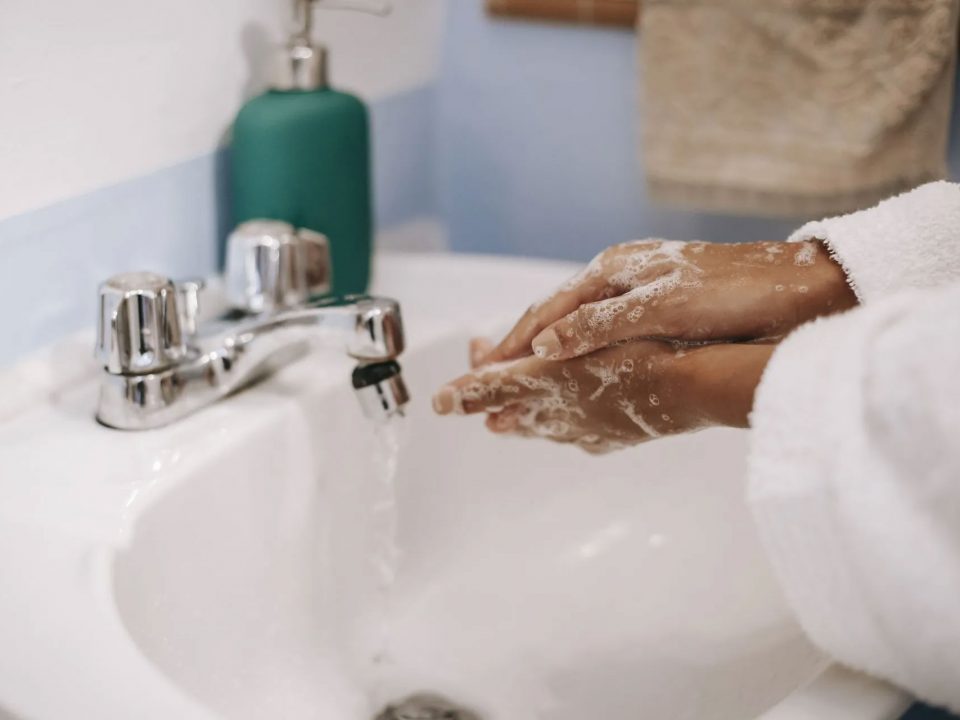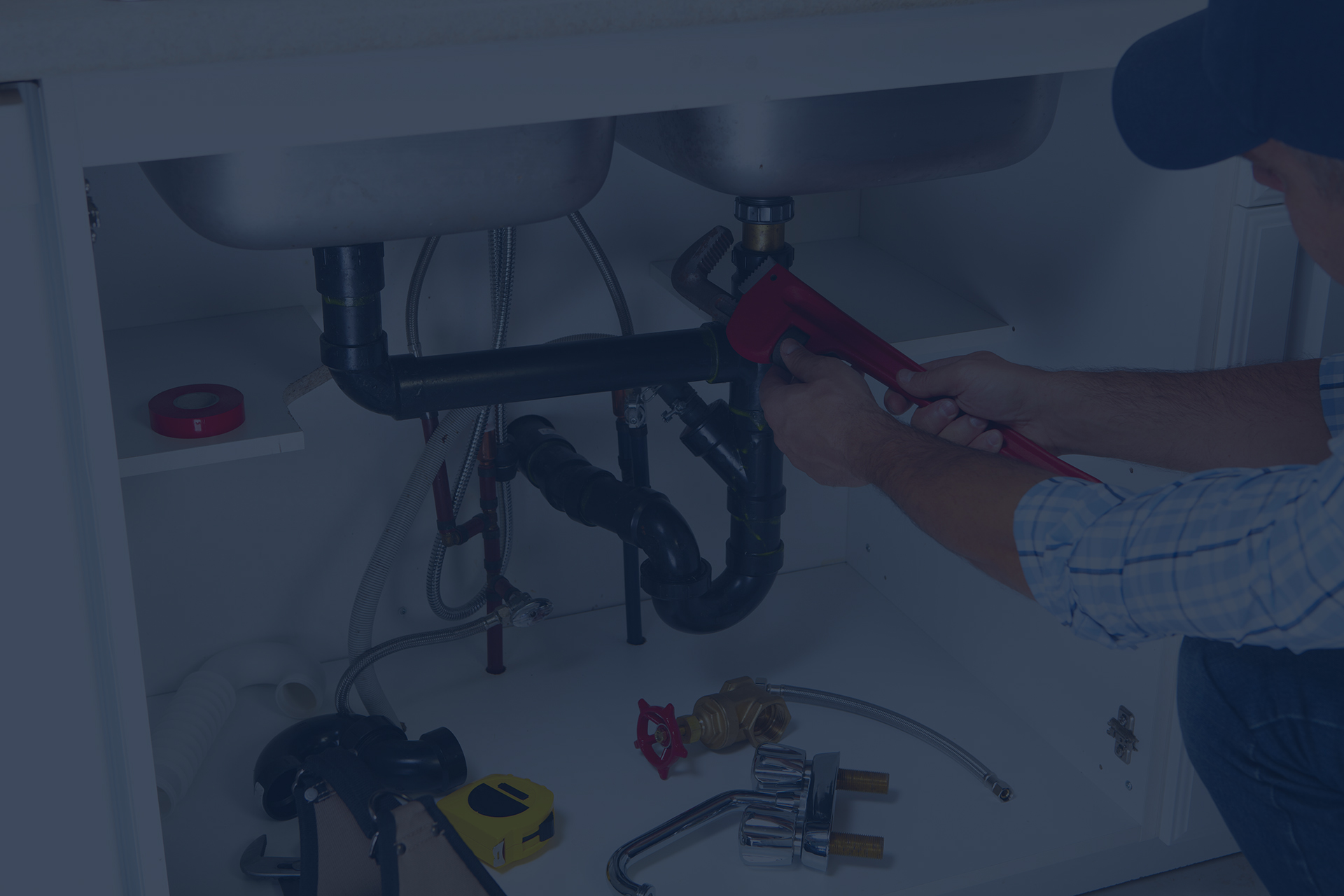Tankless Water Repair
If you already have a tankless water heater, Joe the Plumber is available to service your water heater and provide any maintenance that it may need. Whether your home is no longer getting hot water or only scalding hot water is coming through the tap, our plumbers are equipped with the knowledge and skills necessary to diagnose and repair your home’s plumbing.
How Do Tankless Water Heaters Work?
Tankless water heaters heat water directly without the help of a storage tank. Once the hot water tap is switched on, cold water will then travel through the pipe and make its way into the unit. An electric element or gas burner will then heat up the water. The job of the tankless system is to constantly deliver a hot water supply to the home.
But the tankless water heater will only operate when hot water is needed. A storage tank is not needed in order to store the water or reheat it, so business owners and homeowners typically prefer the tankless system over the traditional water heaters. The electronic ignition means no standing pilot light that continuously uses energy. The tankless system is more energy efficient and may save you a good amount of money on utility bills.
How Are Tankless Water Heaters Different?
tankless water heaters more efficient when compared to their predecessors. The reason is that tankless water heaters do not need a giant tank of water in order to keep the water nice and hot. Instead, tankless water heaters employ what we know as the popular on-demand hot water system. Ultimately, this means that once you activate the hot water taps in the house, using the tankless water heater, the water you are currently using will be heated.
Also, tankless water heaters provide great efficiency since they are not required to hold a 40-gallon tank of water, hot, for an entire day. Due to the tankless water heaters producing hot water on demand, it only will heat up the water that you are using.
Once the hot water tap is turned off, the heater will stop heating up the water in an effort to reduce the cost on energy.
When tankless water heaters are installed & maintained, they can last over 20 years. Most manufacturers will offer warranties for up to 15 years, which is extremely beneficial to the homeowner.
Do Tankless Water Heaters Need Maintenance?
Tankless Water Heaters vs Storage Tank Water Heaters
Although there is not anything inherently wrong with the design of the storage or tank-type water heater, they can be quite inefficient. More energy is needed to keep the 40 gallons of water hot for 24 hours daily. This will result in extremely high energy bills and wasted money, in comparison to tankless water heaters, which provide hot water on demand when you need it. That means they only use energy when water is being used.
Tank-type water heaters fail not too far from the point of installation. They have a limited lifespan and living in Houston means we are dealing with mineral-rich water that eats away at exposed metal the moment it is filled up for the 1st time.
Throughout time, mineral deposits will begin to form in the bottom of the tank if there is no proper maintenance. The sediment will block heating elements from direct contact with the water that they are responsible for heating up. Many tank water heaters typically have a life span of 7 to 10 years under ideal conditions. In comparison, tankless water heaters have 20 to 30 years of lifespan.
What Size Of Tankless Hot Water Heater Do I Need?
Choosing the right size tankless hot water heater is crucial for ensuring you have a steady supply of hot water for your home’s needs. Here's how to determine the best size for your household:
-
Calculate Your Hot Water Demand:
- List Your Hot Water Fixtures: Identify all the hot water fixtures in your home, including showers, sinks, dishwashers, and washing machines.
- Determine Flow Rates: Find out the flow rates of these fixtures. This is typically measured in gallons per minute (GPM). For instance, a shower might use 2.5 GPM, while a dishwasher might use 1.5 GPM.
-
Estimate Simultaneous Usage:
- Add Up Flow Rates: Calculate the total GPM you need when multiple fixtures are used at the same time. For example, if you often run a shower and a washing machine simultaneously, add their flow rates together.
-
Consider Temperature Rise:
- Identify the Incoming Water Temperature: This varies depending on your location and the time of year.
- Desired Output Temperature: Typically, you want your hot water to be around 120°F.
- Calculate Temperature Rise: Subtract the incoming water temperature from your desired output temperature. This will help you determine the heater's capacity to raise the water temperature to your preferred level.
-
Choose the Right Model:
- Match GPM and Temperature Rise: Look for a tankless water heater that can handle the total GPM required and the necessary temperature rise. Manufacturers often provide charts to help you match their models to your needs.
Examples of Tankless Water Heater Sizes:
- Small Household (1-2 bathrooms): A unit that provides 3-5 GPM may suffice.
- Medium Household (2-3 bathrooms): A unit that offers 5-7 GPM is typically ideal.
- Large Household (3+ bathrooms): Consider a unit that can handle 7+ GPM or even multiple units for larger homes.
Frequently Asked Questions
Contact Us Today For Tankless Water Heaters
There are plenty of reasons why the tankless water heater remains popular among many homeowners around the world. The amazing features like the endless hot water, on-demand hot water as well as the increased efficiency over storage or tank-type predecessors; make it a top consumer choice. It simply will not be too long before tankless water heater installations become the standard in modern society. Contact the plumbers in Houston, Cypress, Magnolia, Spring, Tomball, & Katy TX today. To get your tankless water heater in the greater Houston area, contact our team today.

Locations Joe the Plumber Services
CYPRESS, TEXAS KATY, TEXAS MAGNOLIA, TEXAS SPRING, TEXAS TOMBALL, TEXAS HOUSTON, TEXAS





